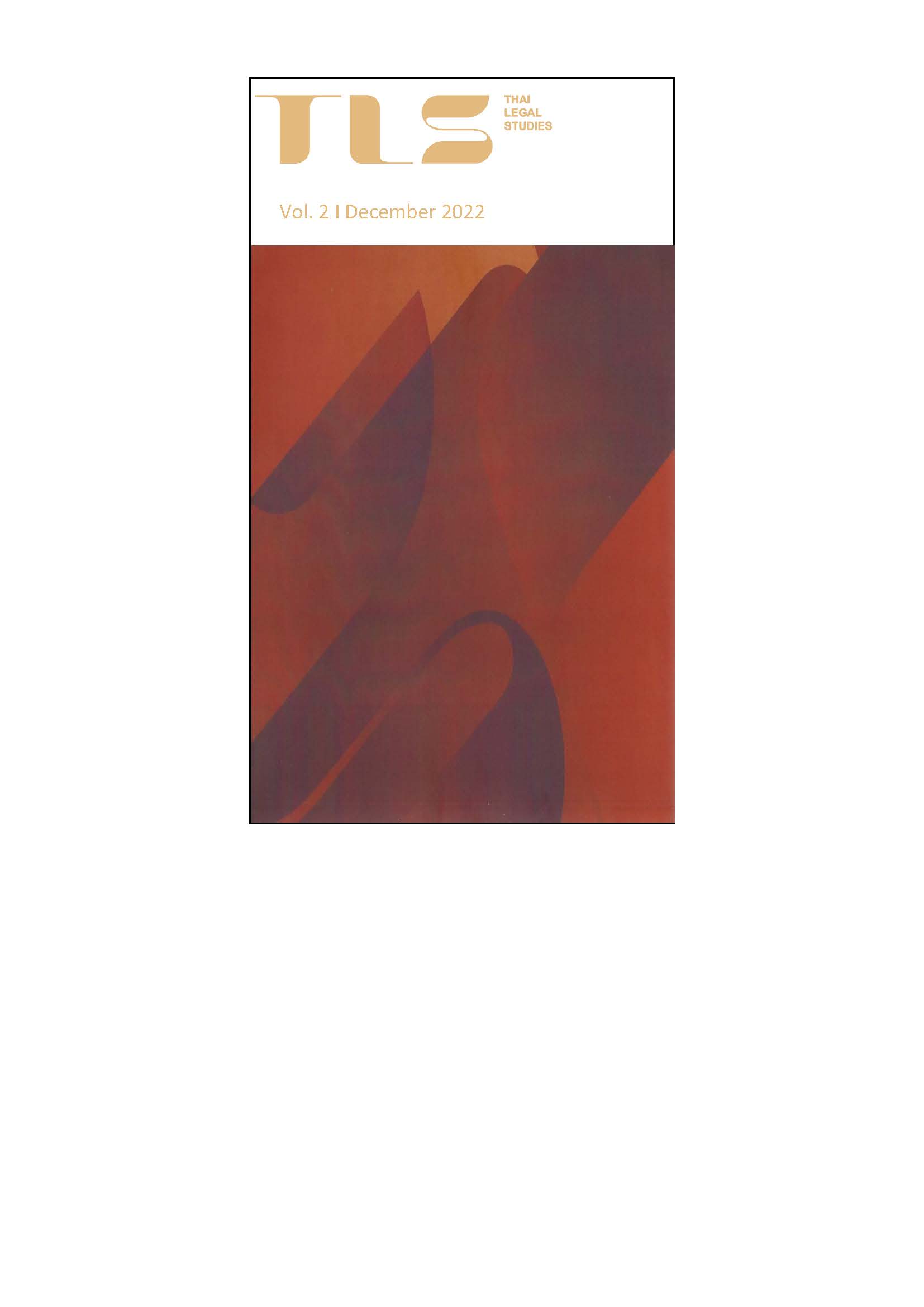Selected Thai Constitutional Court Cases 2019–2022
DOI:
https://doi.org/10.54157/tls.263851Keywords:
Constitutional Court, Constitutional Court cases, Constitutional law, Thai constitutional law, Thai Constitution, Thai Constitutional Court casesAbstract
The Thai Constitutional Court is undeniably influential on Thai constitutional law and the Court’s jurisprudence has certainly raised debates. This fact is excellently demonstrated by other entries of this journal issue. Indeed, the cases in the Constitutional Court's docket between 2019 to 2022 have continued to influence the public discourse.
The year 2019 was when Thailand transitioned back to democracy (at least formally), with the election seeing General Prayuth Chan-o-cha remain as the Prime Minister, albeit now in a legitimately democratic form. As an aftermath of this election, many cases concerning qualifications for political positions arrived at the Constitutional Court's doorsteps. Apart from that, the three years after 2019 also saw the Court rendering significant decisions in terms of civil rights, while political actions (or mistakes) made by previous governments were adjudicated upon as well.
In this compilation, 11 Constitutional Court cases, not discussed by other entries in this journal, have been chosen based on the author's perception of their significance and interestingness. Hopefully, these cases may be able to provide a glimpse of the Constitutional Court's influence on Thai society during these three eventful years.
References
“18 Detained Protesters Deny Charges.” Bangkok Post (7 March 2021). https://www.bangkokpost.com/thailand/politics/2079675/18-detained-protesters-deny-charges
Mongkol Bangprapa, and Agencies. “Dissolve Thai Raksa Chart, Election Commission Decides.” Bangkok Post (13 February 2019). https://www.bangkokpost.com/thailand/politics/1628478/dissolve-thai-raksa-chart-election-commission-decides
Ockey, James. “Future-Forward? The Past and Future of the Future Forward Party.” In Malcolm Cook and Daljit Singh (eds), Southeast Asian Affairs 2020 (ISEAS Publishing 2020). https://doi.org/10.1355/9789814881319-020
Panu Wongcha-Um, and Panarat Thepgumpanat. “ ‘Oust Uncle’: Thailand’s Jog for Dissent Signals New Breed of Activists.” Reuters (13 January 2020). https://www.reuters.com/article/thailand-politics-idINKBN1ZC0YL
“Thailand Coup Leader Prayuth Chan-ocha Voted Prime Minister.” France24 (21 August 2014). https://www.france24.com/en/20140821-thailand-prayuth-chan-ocha-coup-leader-prime-minister-parliament
“Thailand: Two Months Under Military Rule: Deepening Censorship, Persecution, Draconian Orders.” Human Rights Watch (21 July 2014). https://www.hrw.org/news/2014/07/21/thailand-two-months-under-military-rule
“Thailand Votes in First Post-Coup Election.” BBC (24 March 2019). https://www.bbc.com/news/world-asia-47664201
Source in Thai
“ราชกิจจานุเบกษา เผยแพร่ประกาศ ห้ามขายเครื่องดื่มแอลกอฮอล์ออนไลน์”. ไทยรัฐออนไลน์ (8 กันยายน 2563) [“Royal Gazette Publishes Announcement on Online Alcohol Sales Prohibition”, Thairath Online (8 September 2020). https://www.thairath.co.th/news/politic/1926273
Published
Issue
Section
License
Copyright (c) 2023 Supakorn Wilartratsami

This work is licensed under a Creative Commons Attribution 4.0 International License.
Authors retain copyright and publishing rights without restrictions, but grant Thai Legal Studies the right of first publication in English and to distribute the work under a Creative Commons Attribution 4.0 International Public License (“CC BY 4.0”). It allows others to freely share the work, including the making of translations. There is no charge or fee for readers to immediately view published articles or content, and users are allowed to read, download, copy, distribute, print, search, link to the full texts of the articles, or use them for any other lawful purpose, without asking prior permission from Thai Legal Studies or the author(s), the only requirement being that an acknowledgement is given of the work’s authorship and its initial publication in English by Thai Legal Studies.







